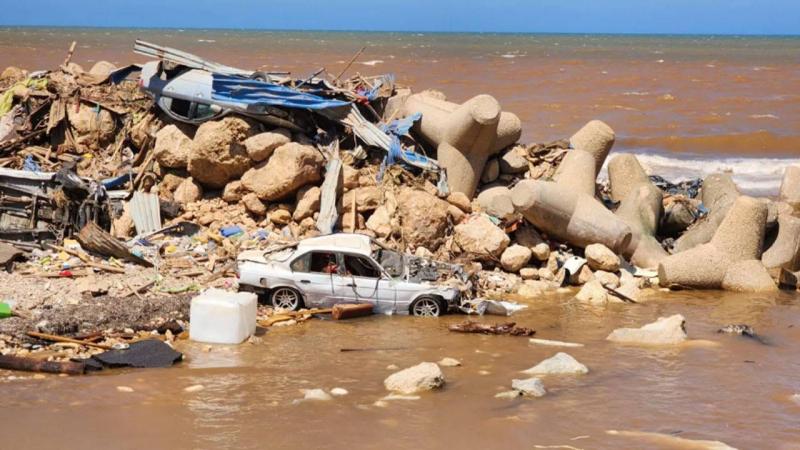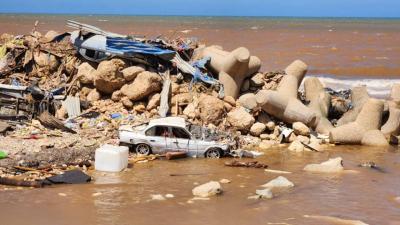Syrian migrant Ammar Kanaan found a small apartment on the first floor of a building in Derna, Libya, seeking refuge far from his homeland after shunning the risky attempt to cross the Mediterranean to Europe for fear of drowning like many others who met this fate. After fleeing Syria two years ago to avoid conscription, Kanaan secured a steady job at a candy store in the Libyan city and lived with two Sudanese colleagues just a few meters from the Derna River. However, this month, the 19-year-old drowned along with thousands of others when floods swept through vast areas of the city. The land where the building once stood is now a patch of reddish-brown dirt after the building became a memory, and the families who relied on these young men for financial support found they could not locate their bodies for burial.
Kanaan’s uncle, Osama (24), who moved from Syria to Benghazi, Libya, this year, said, "He didn't go to the sea. The sea came to him. He died and drowned." More than a decade after the ousting of Muammar Gaddafi in a NATO-backed uprising, Libya has become a major departure point for migrants attempting to reach Europe. However, many also remain to work in Libya, where the economy relies on oil. The International Organization for Migration reported that Derna was home to over 8,000 migrants, mostly from Chad, Egypt, and Sudan, when the floods struck the city. About 400 migrants perished on the evening of September 10 when heavy rain from Storm Daniel caused the collapse of two dams intended to keep the city safe.
Kanaan left Syria at the age of 17, determined to avoid compulsory military service in a country ravaged by 12 years of war. With the Syrian economy in decline, he hoped that any job abroad would enable him to send money to his parents in southern Daraa province. Given the near impossibility of reaching Europe and the costliness of traveling to Turkey, he settled in Libya. There, the idea of getting into a small boat to Europe lured him, but his uncle Osama said, "There was a dream to go to Europe. But the family refused out of fear he would drown." By the age of 19, Kanaan was working in a candy shop earning $500 a month, often sending his family pictures of the cakes he baked.
When the rains fell on September 10, he texted Osama saying, "God help us, this is the best thing." However, the subsequent messages he sent moments later remained unread. By morning, Osama's messages on WhatsApp were not reaching Kanaan’s phone.
Khalil (61), an Egyptian worker living in Derna, recalls the scene of torrents of water sweeping cars into buildings. He said, "I knew all the Egyptians who were here; many of them died." Alaa, an Egyptian construction worker who has lived in Derna for three years, reported losing ten friends in the disaster. He told Reuters, "This is not the Derna we know. The whole center of the city has disappeared." The Syrian Observatory for Human Rights estimates that over 110 Syrians drowned in the floods.
Within hours, Facebook pages used by Syrians in Libya to seek jobs turned into a means to search for the missing online. Photos of men, women, and even children still unaccounted for were posted, accompanied by desperate calls for help and contact numbers. However, within days, the usual messages resumed, like a Syrian inquiring about barbershop wages in Libyan cities, and another woman asking for housing information for a friend. Some replies included advice, while others simply stated, "Do not come."




